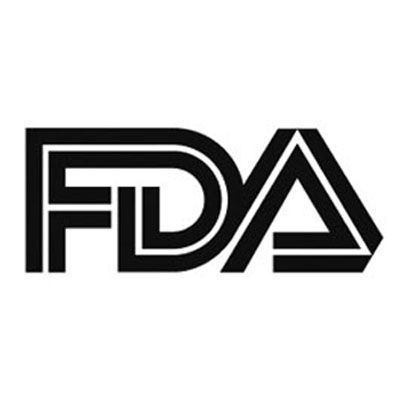FDA Grants Orphan Drug Designation to TJ-CD4B for Gastric Cancer
TJ-CD4B had been granted orphan drug designation by the FDA for the treatment of patients with gastric cancer, including gastroesophageal junction carcinoma.

The FDA has granted orphan drug designation to the novel Claudin 18.2 (CLDN18.2) x 4-11b bispecific antibody, TJ-CD4B, for the treatment of patients with gastric cancer, including gastroesophageal junction (GEJ) cancer, announced I-Mab, in a press release.1
TJ-CD4B is the only bispecific antibody that binds to CLDN18.2-expressing cancer cells as well as co-stimulatory molecule 4-1BB on T cells. By binding to these cells, TJ-CD48 is able to kill tumors. Further, the agent can produce a broader anti-tumor effect that allows it to work on tumors that have low levels of CLDN18.2 expression.
"The orphan drug designation underscores the FDA's recognition of TJ-CD4B's potential promise as a novel therapy for gastric cancer and other related cancers," said Andrew Zhu, MD, PhD, president of I-Mab, in the press release. "TJ-CD4B is designed to work through a novel mechanism of action and is being tested in cancer patients. With the orphan drug designation, we expect to expedite its global clinical development and potentially offer a novel treatment option for such an aggressive group of cancers that have very poor prognosis."
In preclinical metastatic diffuse-type gastric cancer models, which looked into the correlation between CLDN18.2 expression and outcomes, CLDN18.2 expression was decreased in patients with peritoneal metastasis. Moreover, CLDN18.2 expression appeared to positively correlate with other adherent junction molecules, like RhoGAP and E-cadherin.2
An open-label, multicenter, multiple-dose phase 1 study of TJ-CD4B is currently recruiting patients with advanced or metastatic solid tumors including patients with gastric and gastroesophageal junction carcinoma (NCT04900818). Other cancers included in the study are esophageal adenocarcinoma and pancreatic ductal adenocarcinoma. The target enrollment for the study is 108 patients.3
The coprimary end points being investigated in the study include dose-limiting toxicities (DLTs), the incidence and severity of adverse events (AEs), and the maximum-tolerated dose of TJ-CD4B. The secondary end point is pharmacokinetics defined by the area under the curve (AUC) from time zero extrapolated to infinity, AUC from time zero to the time of the last quantifiable concentration, maximum observed concentration, time peak of concentration, and investigation product half-life.
During the study, TJ-CD4B will be administered at up to 8 dose levels ranging from 0.1 mg/kg to 15 mg/kg bi-weekly. In the dose-expansion phase, the agent will be administered once every 2 weeks (Q2W) beginning at the highest dose to have been cleared without DLTs. Following the dose-expansion of TJ-CD4B, the agent will be administered Q2W at the maximum allowed dose of recommended phase 2 dose.
To be eligible for inclusion, patients must have an advanced or metastatic solid tumor with disease that has progressed despite standard therapy or have no further standard therapy to choose from or be unsuitable for available standard of care options. All patients are required to have an ECOG performance status of 0 or 1, along with adequate organ function. For inclusion in the dose-expansion study, must have CLDN18.2-positive tumor expression as determined by the CLDN18.2 immunohistochemistry assay in addition to having one of the prespecified advanced or metastatic gastrointestinal cancers.
Individuals excluded from the study are those with prior exposure to CLDN18.2 -targeted therapy and/or 4-1BB agonists. Patients will also be excluded if they have active or chronic Hepatitis B or C, unstable or active ulcer or digestive tract bleeding within 6 weeks. Active autoimmune disease requiring systemic therapy within 2 weeks before the start of the study, active interstitial lung disease, known active central nervous system metastases and/or carcinomatous meningitis, certain cardiac conditions, or HIV.
The phase1 study is actively recruiting patients in California, Colorado, Indiana, Massachusetts, New Jersey, New York, North Carolina, Tennessee, Texas, and Wisconsin.
References:
1. I- I-Mab receives FDA orphan drug designation for its novel claudin 18.2 x 4-1BB bispecific antibody TJ-CD4B for the treatment of gastric cancer. News release. I-Mab. March 3, 2022. Accessed March 3, 2022. https://prn.to/3KepTa0
2. Kim Sr, Shin K, Park, JM, et al. Clinical significance of cldn18.2 expression in metastatic diffuse-type gastric cancer. J Gastric Cancer. 2020;20(4):408-420. doi: 10.5230/jgc.2020.20.e33
3. Study of TJ033721 in subjects with advanced or metastatic solid tumors. Clinicaltrials.gov. Accessed March 3, 2022. https://bit.ly/3CcQ7Xj